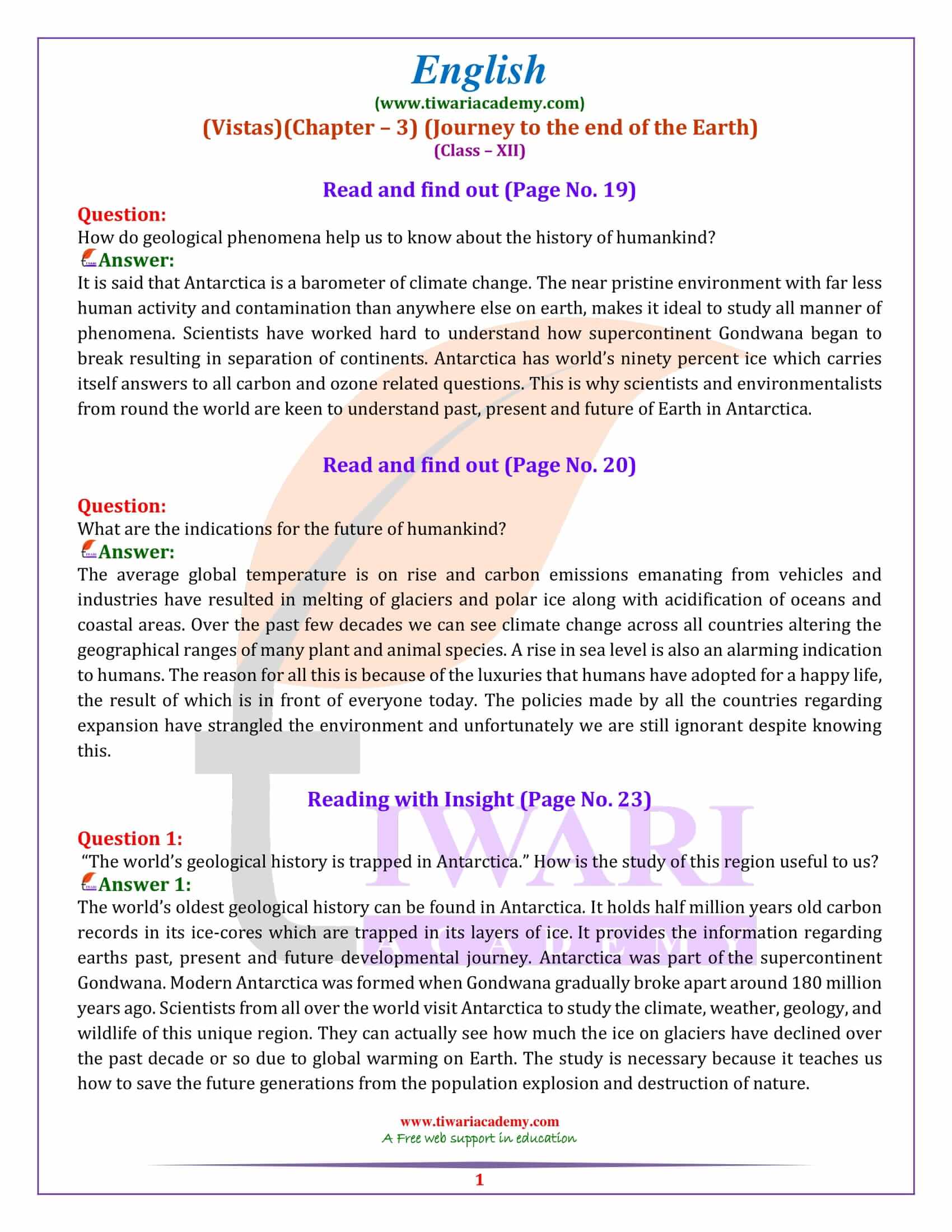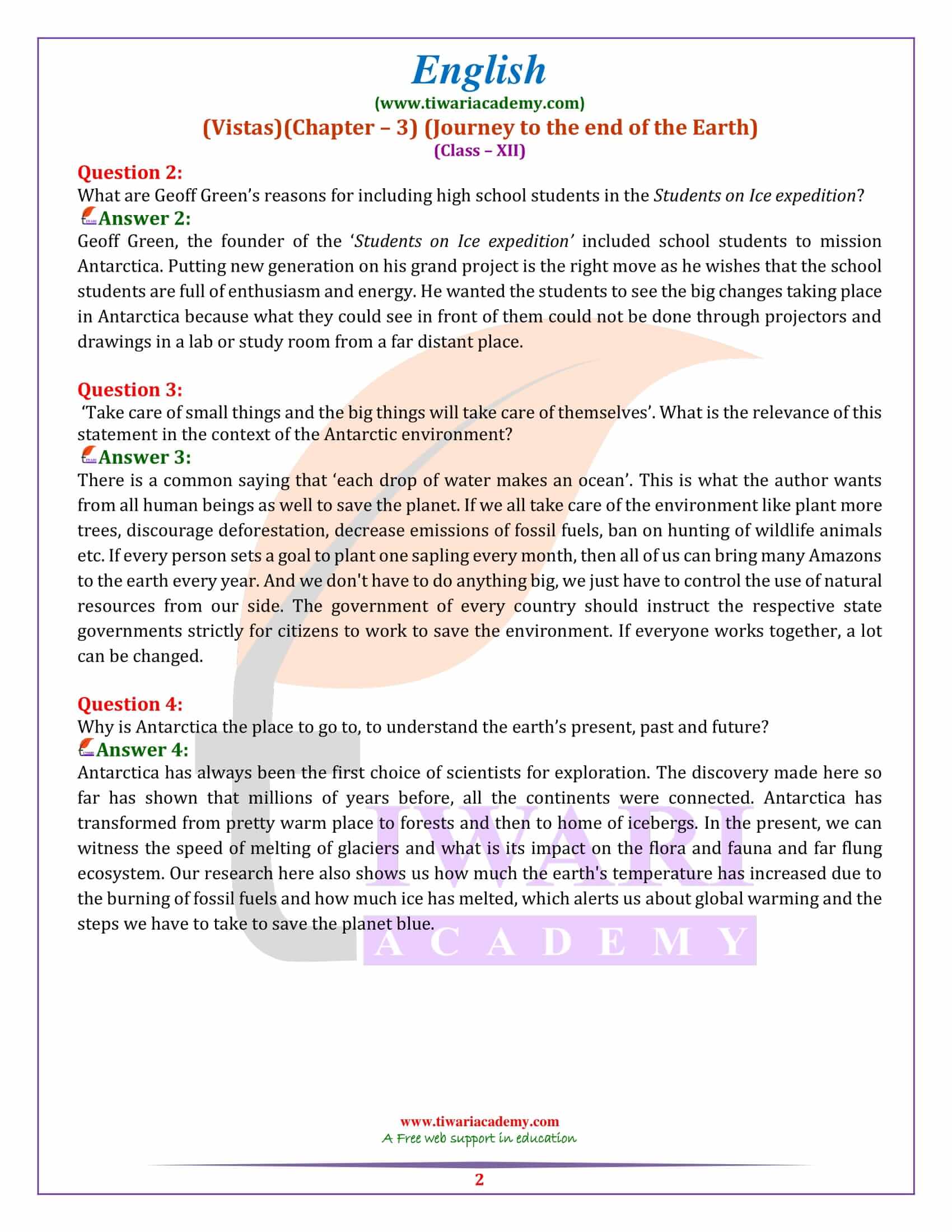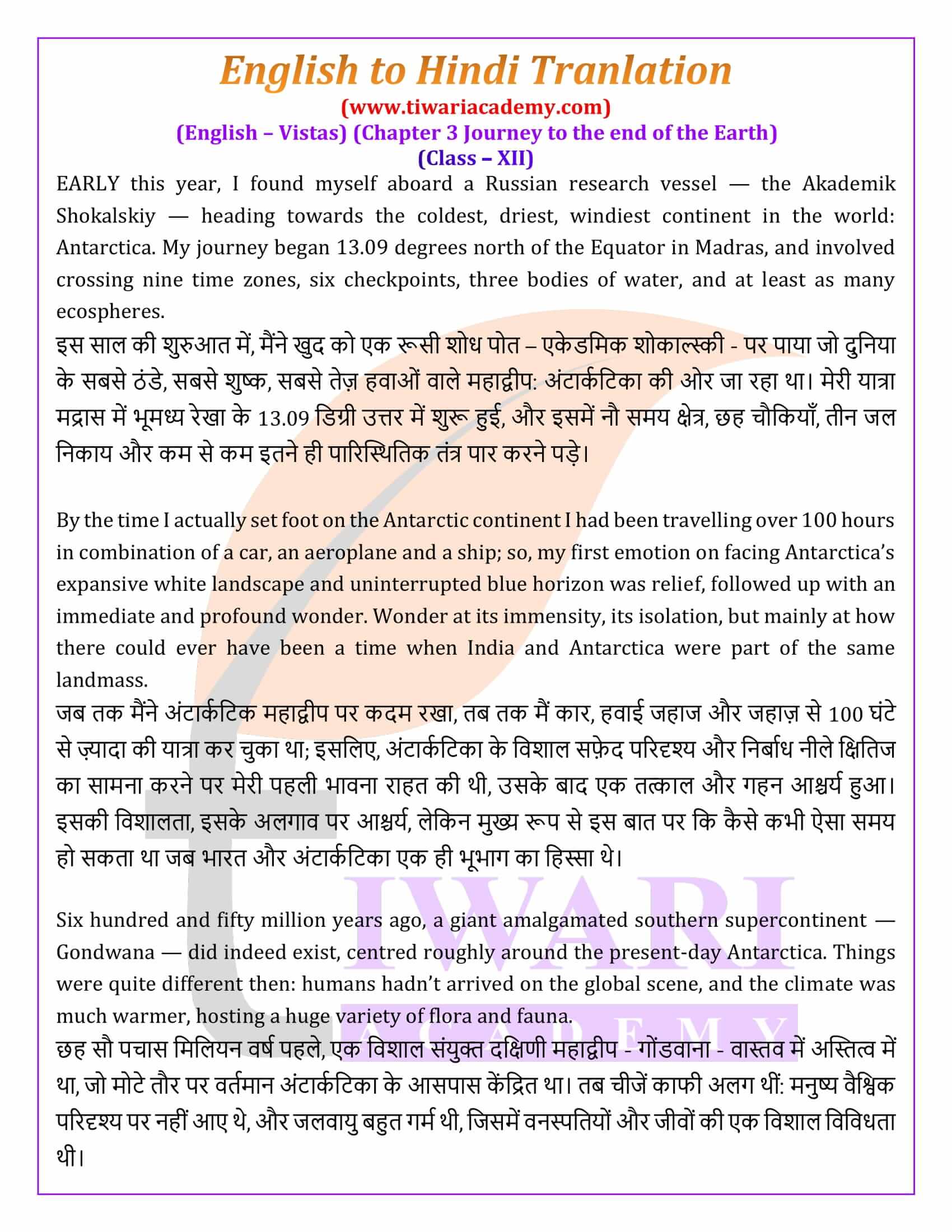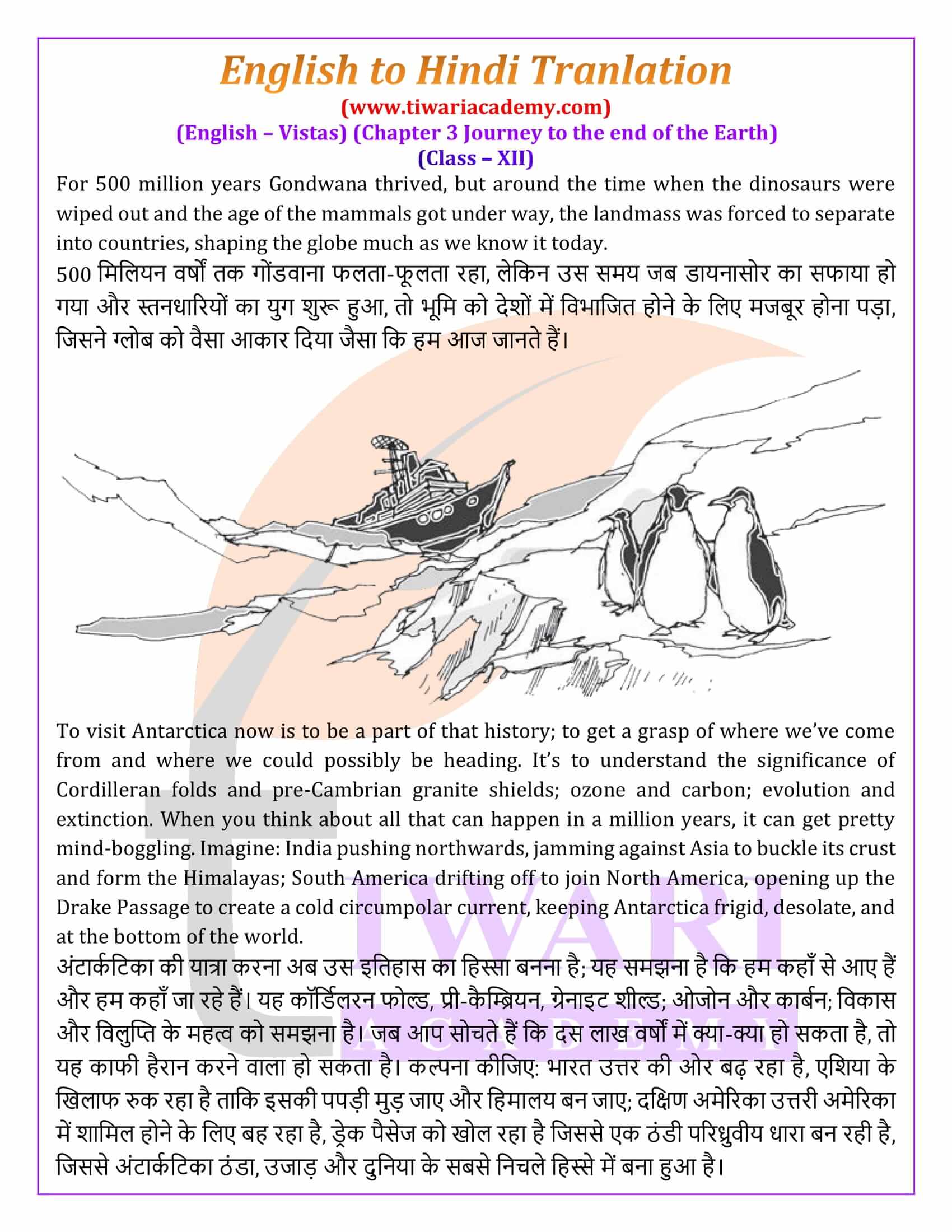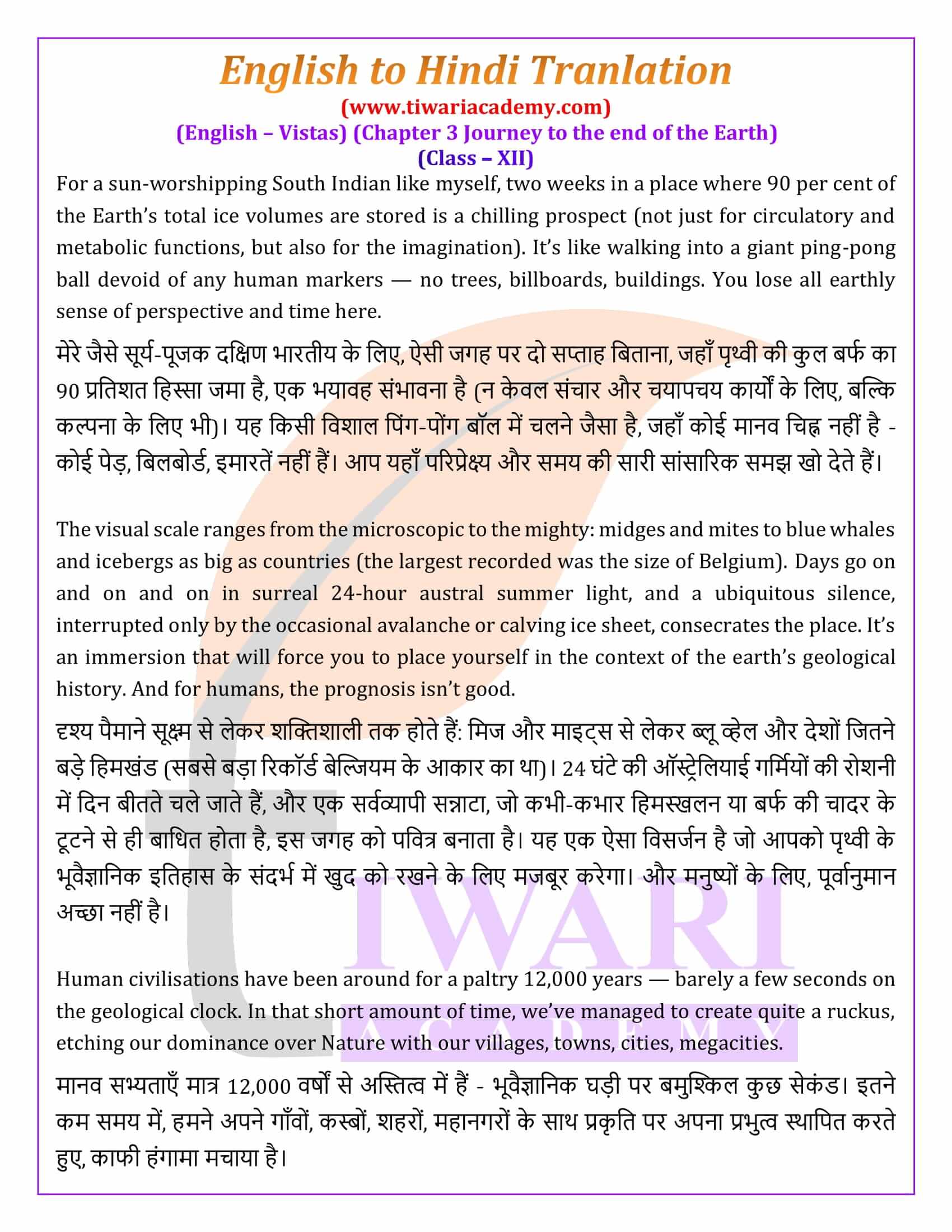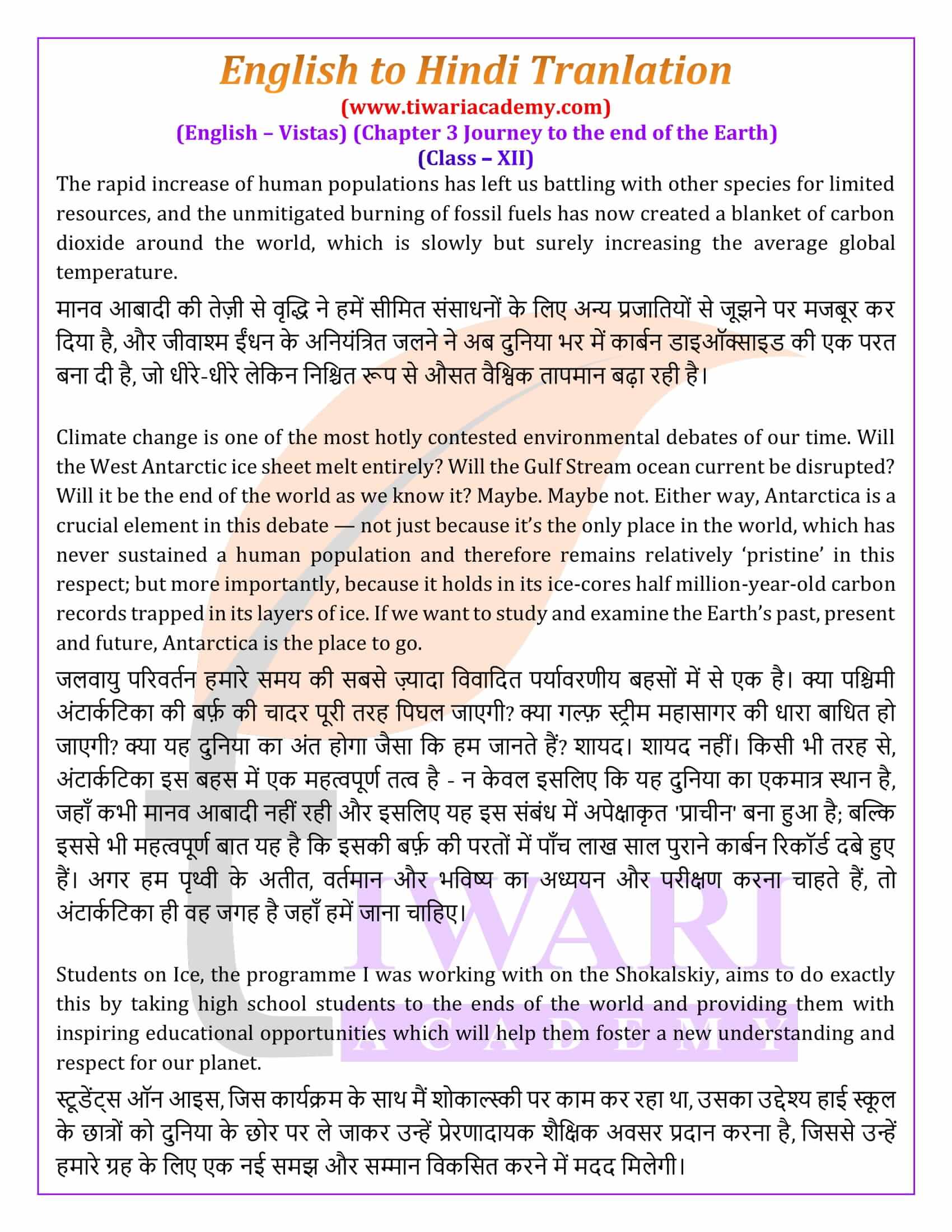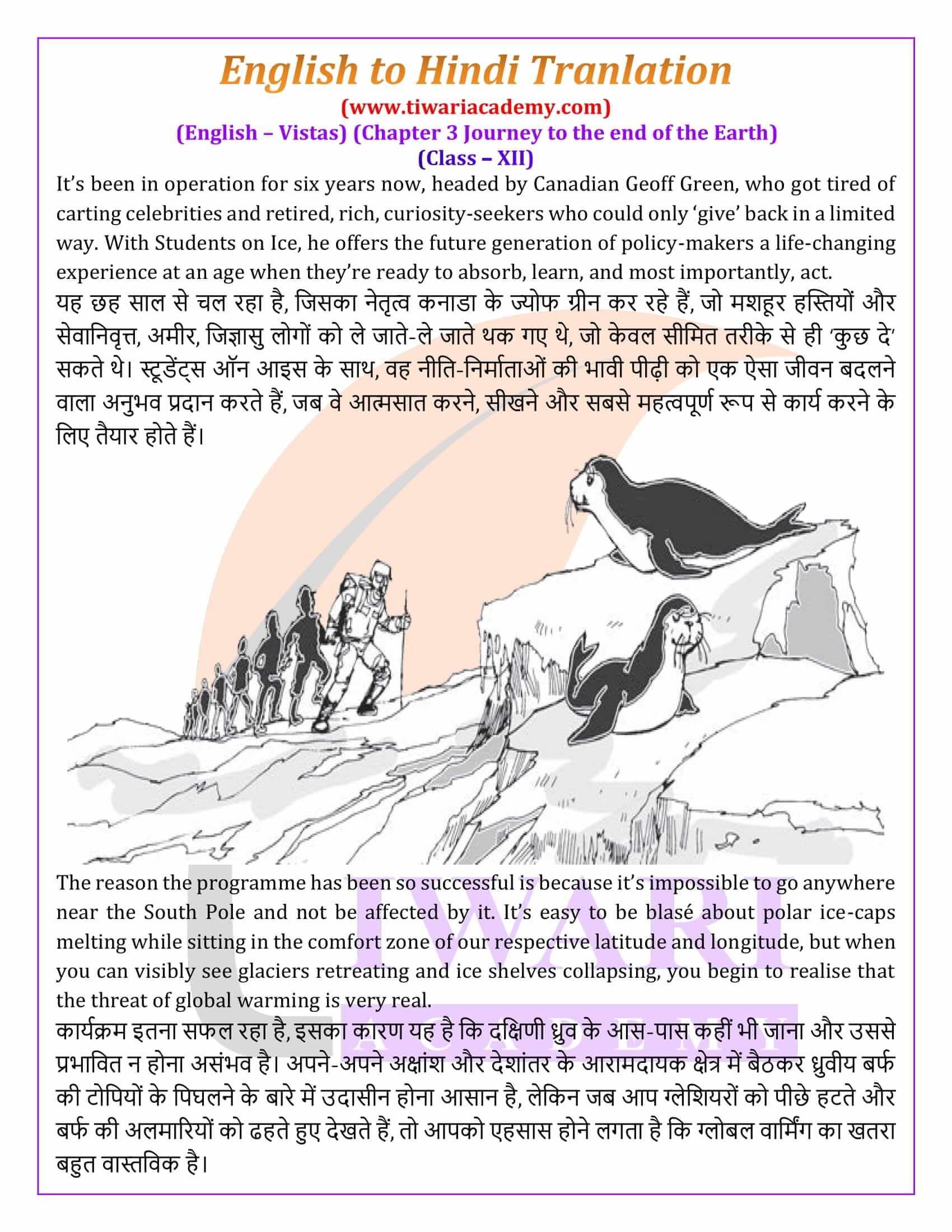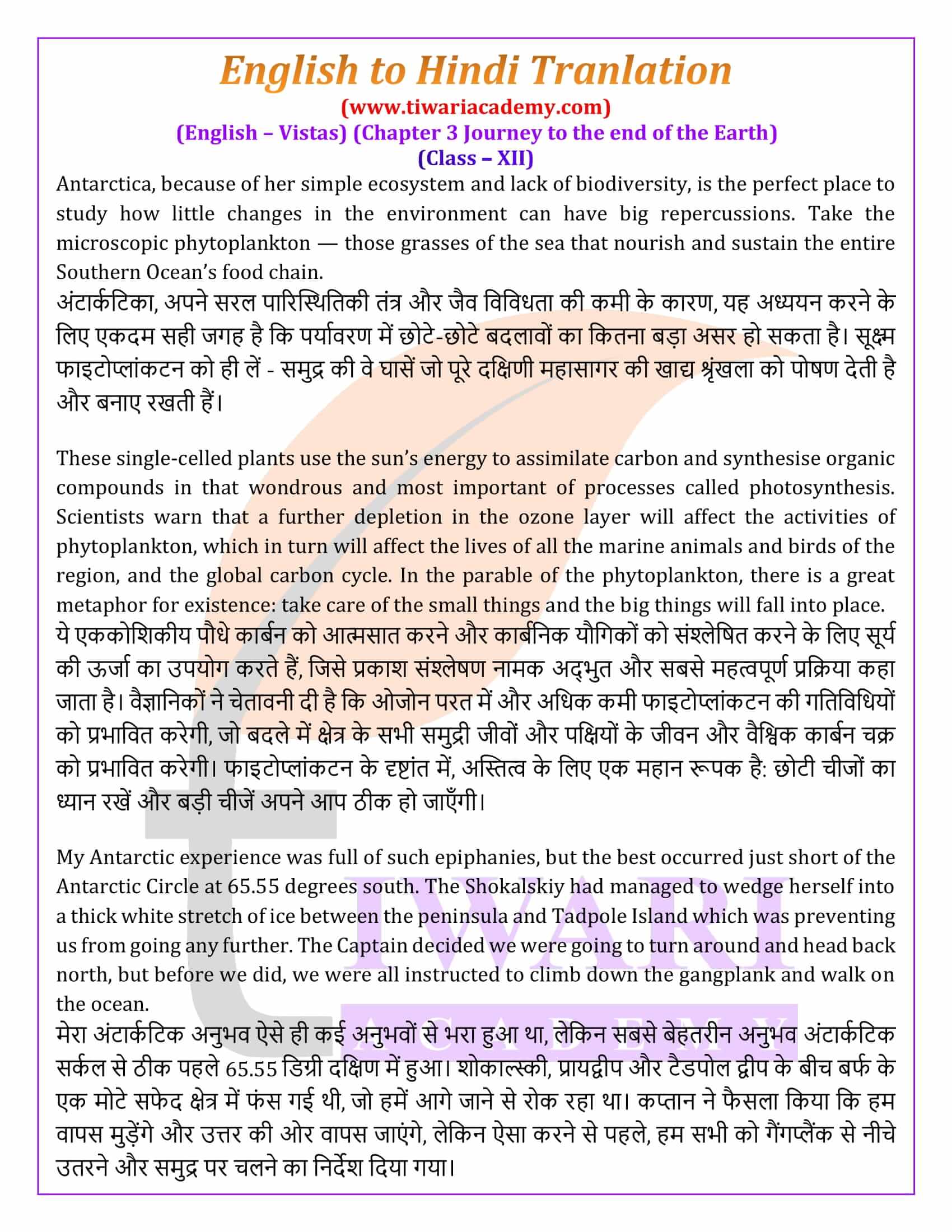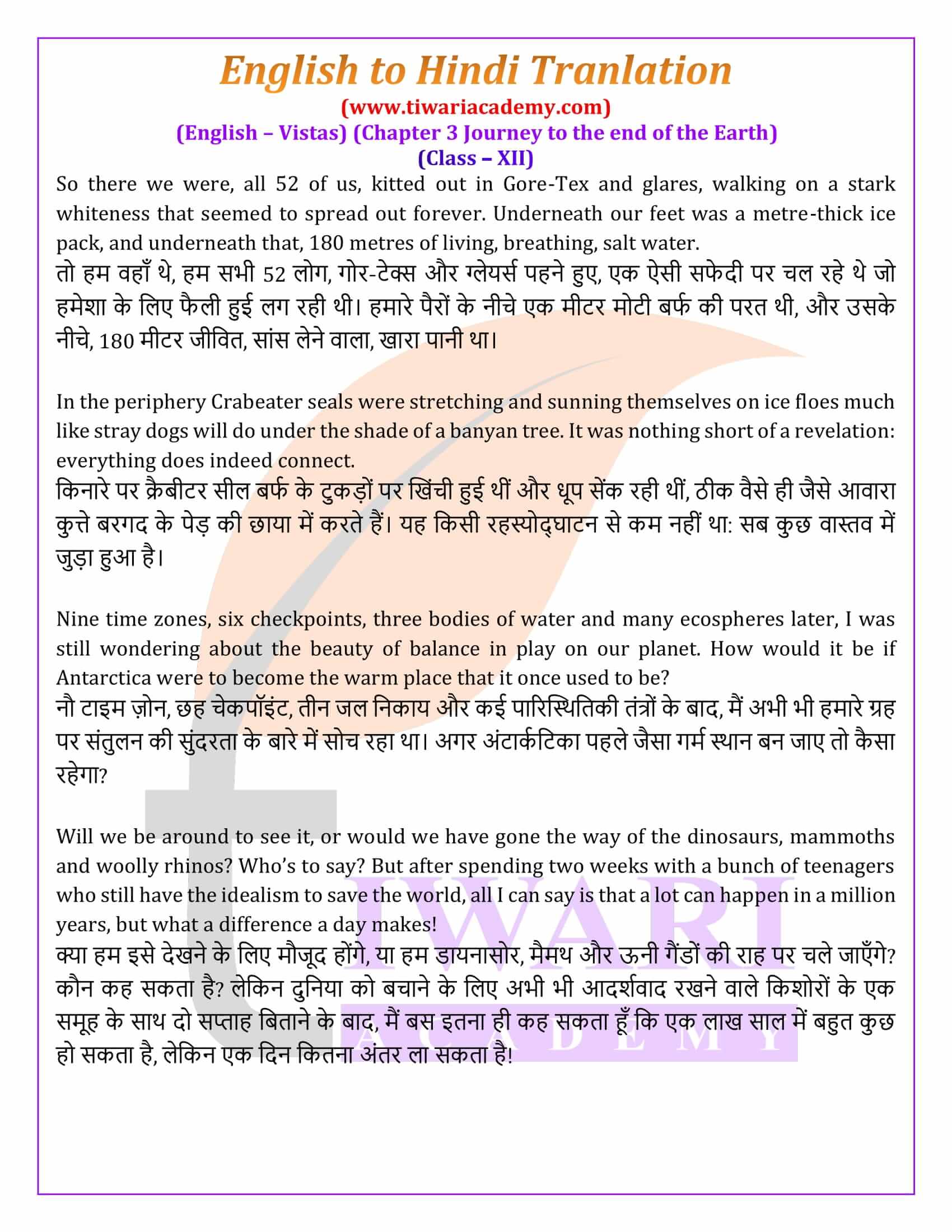NCERT Solutions for Class 12 English Vistas Chapter 3 Journey to the end of the Earth with Hindi Translation for new session 2025-26. All the answers and English to Hindi Translation of class 12 English Vistas chapter 3 exercise are given here in easy language. Extra questions based on chapter 3 are helpful for the exam preparation.
Read and find out (Page No. 19)
How do geological phenomena help us to know about the history of humankind?
It is said that Antarctica is a barometer of climate change. The near pristine environment with far less human activity and contamination than anywhere else on earth, makes it ideal to study all manner of phenomena. Scientists have worked hard to understand how super continent Gondwana began to break resulting in separation of continents. Antarctica has world’s ninety percent ice which carries itself answers to all carbon and ozone related questions. This is why scientists and environmentalists from round the world are keen to understand past, present and future of Earth in Antarctica.
What are the indications for the future of humankind?
The average global temperature is on rise and carbon emissions emanating from vehicles and industries have resulted in melting of glaciers and polar ice along with acidification of oceans and coastal areas. Over the past few decades we can see climate change across all countries altering the geographical ranges of many plant and animal species. A rise in sea level is also an alarming indication to humans. The reason for all this is because of the luxuries that humans have adopted for a happy life, the result of which is in front of everyone today. The policies made by all the countries regarding expansion have strangled the environment and unfortunately we are still ignorant despite knowing this.
“The world’s geological history is trapped in Antarctica.” How is the study of this region useful to us?
The world’s oldest geological history can be found in Antarctica. It holds half million years old carbon records in its ice-cores which are trapped in its layers of ice. It provides the information regarding earths past, present and future developmental journey. Antarctica was part of the super continent Gondwana. Modern Antarctica was formed when Gondwana gradually broke apart around 180 million years ago. Scientists from all over the world visit Antarctica to study the climate, weather, geology, and wildlife of this unique region. They can actually see how much the ice on glaciers have declined over the past decade or so due to global warming on Earth. The study is necessary because it teaches us how to save the future generations from the population explosion and destruction of nature.
What are Geoff Green’s reasons for including high school students in the Students on Ice expedition?
Geoff Green, the founder of the ‘Students on Ice expedition’ included school students to mission Antarctica. Putting new generation on his grand project is the right move as he wishes that the school students are full of enthusiasm and energy. He wanted the students to see the big changes taking place in Antarctica because what they could see in front of them could not be done through projectors and drawings in a lab or study room from a far distant place.
‘Take care of small things and the big things will take care of themselves’. What is the relevance of this statement in the context of the Antarctic environment?
There is a common saying that ‘each drop of water makes an ocean’. This is what the author wants from all human beings as well to save the planet. If we all take care of the environment like plant more trees, discourage deforestation, decrease emissions of fossil fuels, ban on hunting of wildlife animals etc. If every person sets a goal to plant one sapling every month, then all of us can bring many Amazons to the earth every year. And we don’t have to do anything big, we just have to control the use of natural resources from our side. The government of every country should instruct the respective state governments strictly for citizens to work to save the environment. If everyone works together, a lot can be changed.
Why is Antarctica the place to go to, to understand the earth’s present, past and future?
Antarctica has always been the first choice of scientists for exploration. The discovery made here so far has shown that millions of years before, all the continents were connected. Antarctica has transformed from pretty warm place to forests and then to home of icebergs. In the present, we can witness the speed of melting of glaciers and what is its impact on the flora and fauna and far flung ecosystem. Our research here also shows us how much the earth’s temperature has increased due to the burning of fossil fuels and how much ice has melted, which alerts us about global warming and the steps we have to take to save the planet blue.
Class 12 English Vistas Chapter 3 Extra Question Answers
What were the writer’s feelings on reaching Antarctica?
The writer’s first emotion on reaching Antarctica was that of relief. It was a very thrilling and suspenseful journey for the author. She felt relieved to have set foot on the Antarctic continent after travelling over 100 hours. Then she experienced a sense of amazement on seeing its vastness and immense white landscape which dazzled her eyes. No trees, plants, no humans, no buildings. As far as the eye could see, only the ground covered with a sheet of snow and the white sky was visible. Apart from her crew, if any other creature was seen, it was Crab eater seals.
What sort of brightness and silence prevailed in Antarctica during summer?
The brightness that prevailed in Antarctica is strange as the austral summer light remained for 24 hours in the continent. The temperature in Antarctica in summer is -20°C. The sun is always in the sky for six months and when the sunlight strikes through the snow, a bright light emerges. The silence there is widespread and is interrupted only by the occasional snow slides or during calving ice sheet.
What are phytoplanktons? How are they important to our ecosystem?
Phytoplankton is the base of several aquatic food webs. In a balanced ecosystem, they provide food for a wide range of sea creatures. Phytoplankton, also known as micro algae, are similar to terrestrial plants in that they contain chlorophyll and require sunlight in order to live and grow. Through photosynthesis, phytoplankton use sunlight, nutrients, carbon dioxide, and water to produce oxygen and nutrients for other organisms. With 71% of the Earth covered by the ocean, phytoplankton are responsible for producing up to 50% of the oxygen we breathe and absorb carbon emissions. Phytoplankton are vital to marine ecosystems. They are producers or autotrophs that form the foundation of most marine food webs.
Why does Tishani Doshi call her trip to Antarctica a “Journey to the End of the Earth”? What experience did she have during this expedition?
Tishani Doshi calling her trip as “Journey to the End of the Earth” has basically two meanings. First, It is situated at such an end of the earth where there are no humans, trees, nor any other thing related to civilization. One can feel as if he’s not on earth but on some other planet. No human being will ever go to Antarctica if we don’t have to do research and analysis. Secondly, If the end of mankind will be written on earth, then it will begin from here because the speed with which we are destroying nature is bound to cause melting of glaciers and rise of sea water which will prove to be the end for humanity.
Her experience was very good. She understood the earth’s past, present and future closely and understood the value of this precious natural world.
Why does the author think that ever since man has stepped on the earth, he is only creating a ruckus?
The author is right to think so. We all know that ever since human civilization has flourished on earth, since then we have only destroyed our nature. The growing population of Asia and the expansion policies of every country have only harmed the world. Agricultural land is being destroyed for higher profits and industries are being promoted to give strength to the economy. Chemicals are mixed in the soil to avoid shortage in the food chain, which affects the soil and water quality. Man is spoiling nature for his own sake. He is unaware of the fact that one day the race for growth and development will definitely lead to destruction however everyone is sitting blindly presently.
